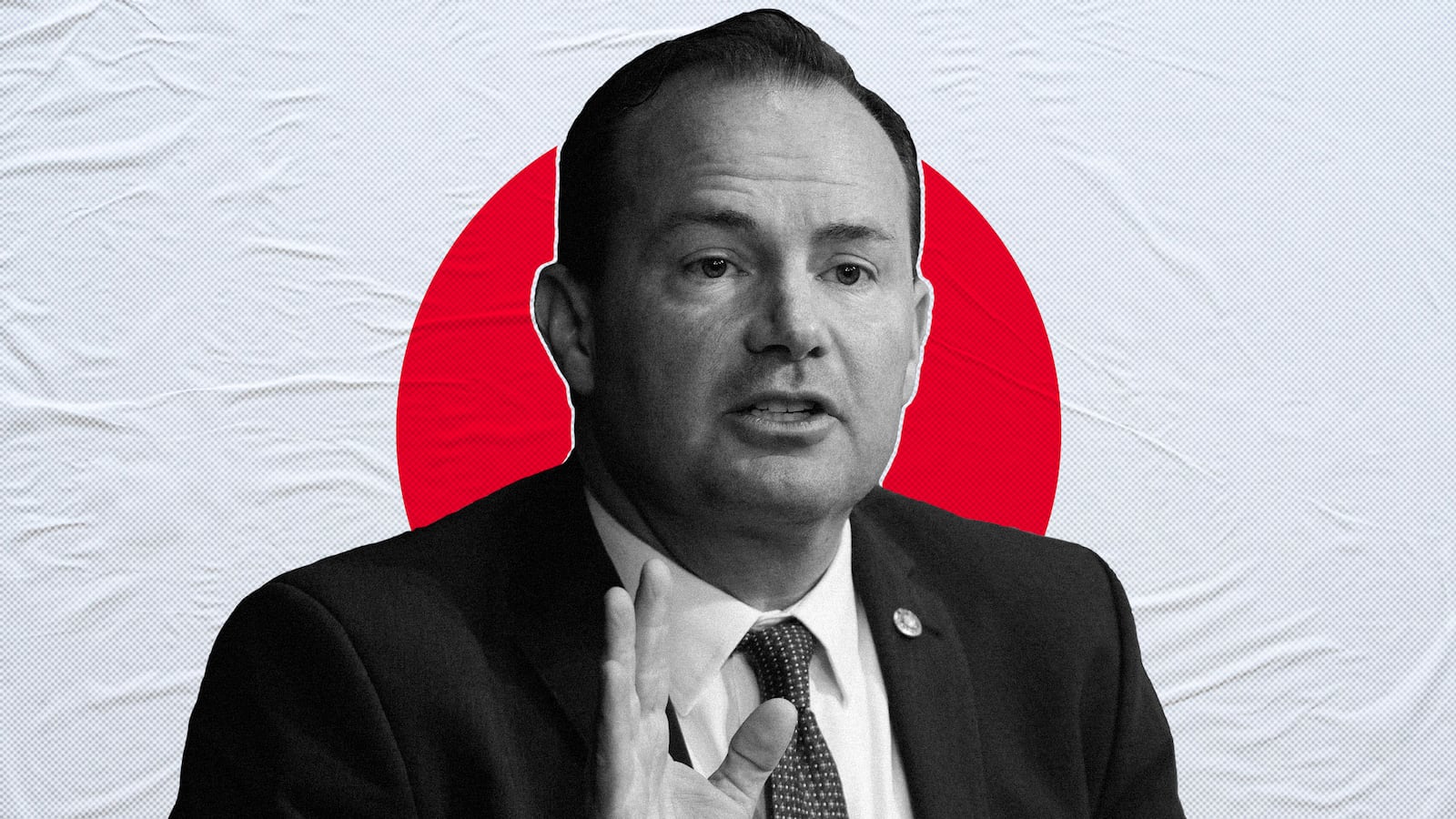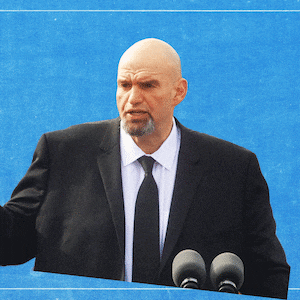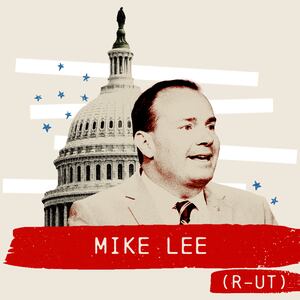For weeks, one Twitter Blue subscriber has repeatedly challenged Japanese Prime Minister Fumio Kishida over the imprisonment of a U.S. military officer, firing off combative tweets and veiled threats demanding Japan return the soldier to American custody.
Political leaders deal with armies of social media critics all the time. But in this case, the Twitter Blue user telling Kishida to “hand him over in the next seven hours”—or face consequences from the U.S.—was far from random.
It was Mike Lee, the senior Republican U.S. senator from Utah. More crucially, it was Lee’s quasi-alter ego: “Based Mike Lee.”
The popular slang term is often used to praise politicians who are seen as especially unfiltered in giving their opinions. With his dogged campaign to get Kishida to release Navy Lt. Ridge Alkonis—who is serving a three-year sentence in a Japanese prison for negligent driving in a fatal accident—Lee may have lived up to his self-awarded branding.
Many in Washington—including President Joe Biden—strongly believe that Alkonis should be transferred back to the U.S., and have raised serious concerns with the soldier’s treatment by the Japanese justice system and Kishida’s pace in responding.
But to some who have watched Lee’s moves closely, the senator’s approach has been more befuddling than based.
That includes one of his colleagues, Sen. Brian Schatz (D-HI), who sits on the Senate Foreign Relations Committee.
“The officer should be released,” Schatz told The Daily Beast. “But that’s not the way we do diplomacy with our friends. The U.S.-Japan relationship remains the most important bilateral relationship that we have, bar none, and this is an immature way to try to get the result he’s working for.”
In the careful world of politics and diplomacy, it is highly unusual to see a prominent U.S. lawmaker speak to an allied foreign leader as if they were a character in a Liam Neeson hostage movie.
On Tuesday, just before the deadline Lee gave Kishida to send Alkonis back, the senator tweeted a news article reporting that Japan wanted to purchase 400 Tomahawk missiles from the U.S.
“We might need to reconsider this,” said Lee, tagging Kishida’s account. “Also, you’ve got 24 hours, not 48. Hand him over. Now.”
“If you don’t hand him over in the next seven hours, a series of conversations will begin tomorrow to inform Americans of how poorly you’re treating our military personnel,” Lee tweeted later. “Not just Ridge Alkonis, but all 55,000 U.S. forces in Japan.”
But to Alkonis’ family, who have been vocally pushing to bring Ridge home, Lee’s tactics have been welcome.
“We have no concerns that Senator Lee’s tweets harm Ridge’s prospects for release,” said Jon Franks, a spokesman for the family, who had been working with Lee.
“Quite frankly, much of the criticism of the tweets has been motivated by animus toward Mike Lee than it is sincere concern for the alliance or Ridge’s prospects for release,” said Franks, who noted he is a registered Democrat.
The “Based Mike Lee” account did get temporarily suspended from Twitter, sparking speculation that his tweets to Kishida were the reason. Later, Twitter CEO Elon Musk restored the account and said that someone had incorrectly flagged it as impersonation. (“Which is not totally crazy, because it is based,” Musk said.)
Indeed, Lee’s willingness to drop hot takes, and lob the occasional potshot at establishment Republicans like Sen. Mitch McConnell, has quickly made the senator’s personal account—with 87,000 followers—a favorite voice for the very online right.
But some warn that Lee’s aspirations for based-ness may not mix with this particular mission. “If the goal is to say, ‘We got him home,’ this doesn’t seem to move closer to that goal,” said Tobias Harris, a Japan expert at the German Marshall Fund think tank.
The trickiness rests in the complicated politics of the longstanding U.S. military presence in Japan, where there were roughly 55,000 American soldiers stationed last year.
Under the so-called Status of Forces Agreement signed by the two countries in 1960, U.S. service members stationed in Japan are only subject to the U.S. military justice system for crimes committed in the course of their official duties.
For any crimes alleged to be committed off-base or off-duty, U.S. personnel are subject to the Japanese justice system. Alkonis was on a day trip with his family near Mount Fuji when he lost control of the minivan he was driving and crashed into a roadside parking lot, killing two people.
The agreement has long been viewed unfavorably in Japan, with many citizens believing it is too protective of American servicemembers—though Japan’s defense forces enjoy generous agreements with overseas hosts.
Particularly in a moment of heated competition with China, the treaty provides a huge strategic benefit for the U.S., which keeps a massive military footprint in Japan at relatively low cost and with privileges afforded by few other allies.
Harris said that both Biden and Kishida’s governments would likely prefer to go about securing Alkonis’ transfer quietly, because neither benefits from a conversation that could put the longstanding military forces agreement up for renegotiation.
“If there was a way to do it quietly, without fanfare, maybe something could get done,” said Harris. “It seems the more public it becomes, the harder it becomes to have quiet talks that result in a deal.”
In response to questions, a Lee spokesperson referred The Daily Beast to the senator’s floor speech from Wednesday, in which he said Japan “unjustly incarcerated” Alkonis for “too long” and has slow-walked negotiations with the U.S.
Lee also argued Japan’s treatment of the Navy officer was not befitting of a close ally—particularly one, he repeatedly mentioned, that the U.S. spends heavily to help protect. And he made clear that he is not backing down on his confrontational approach.
“The longer Ridge remains in Japanese custody,” Lee said, “the louder we will get.”
A State Department spokesperson declined to comment on Lee’s tweets, but said that Secretary of State Antony Blinken “has no higher priority than the safety and security of U.S. citizens overseas, including, of course, America’s servicemembers.”
“The case is tragic for all involved and we are working to find a compassionate resolution consistent with the rule of law in both countries,” the spokesperson said. “The Secretary has consistently raised the case with his Japanese counterparts in an effort to achieve that resolution."
In response to a request for comment, a spokesperson for the Japanese embassy in Washington said “the matter should be handled appropriately by the judicial authorities in accordance with the law, and close consultations have been held between the two governments.”
Initially, Alkonis’ case did not attract much attention in Japan or in the U.S.—though it was closely followed by members of the Church of Jesus Christ of Latter-Day Saints, of which Alkonis is a member. Lee, also a member, represents the state with the highest Mormon population.
In May 2021, Alkonis was stationed at the U.S. Navy base in Yokosuka, near Tokyo, when he was involved in the accident on Mount Fuji. Japanese authorities determined he fell asleep at the wheel, while U.S. Navy investigators claimed he lost consciousness due to altitude sickness. From the Senate floor, Lee alleged that after the accident, Alkonis was kept in solitary confinement and not given the opportunity to understand proceedings in English.
In Japanese court, Alkonis pleaded guilty to negligent driving. He apologized to the victims’ family and raised $1.6 million for them, according to the New York Times. But the family insisted he had not done enough and hadn’t acknowledged the severity of the accident. Alkonis was sentenced to three years in prison after losing an appeal.
Alkonis’ family has taken their case to top U.S. officials—including Biden himself. After the president’s State of the Union address last month, Alkonis’ wife spoke with him briefly; Lee said the president told her he’d work to secure her husband’s release.
U.S. officials, like Lee, argue that Japan gets a sweetheart deal through their longstanding bilateral agreement, but in Japan, there’s long been frustration among the public around the American military presence.
Harris, of the German Marshall Fund, argued that if Alkonis’ case got more attention in Japan, it could raise pressure on Kishida not to cooperate with the U.S. on his transfer.
“If this did raise more awareness of the case in Japan, it’d make it that much harder for the Japanese government to make some agreement to transfer him to US custody,” he said.
For now, that has not been the case: Harris said that Lee’s campaign against Kishida has gotten little press coverage in the country.
“Maybe,” he said, “they thought it was some parody account.”










